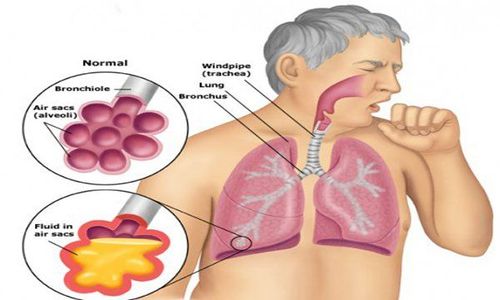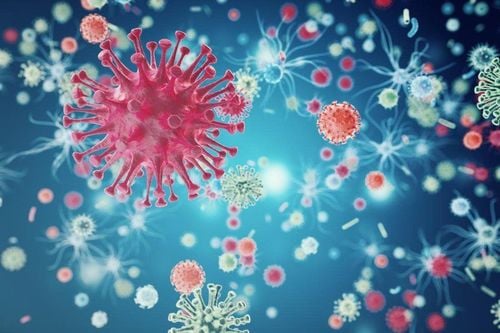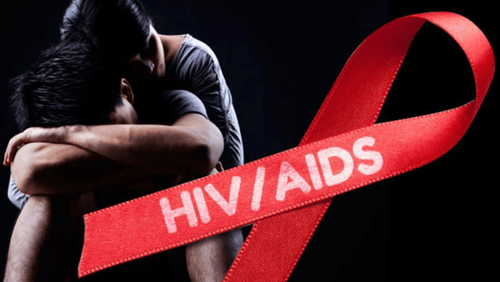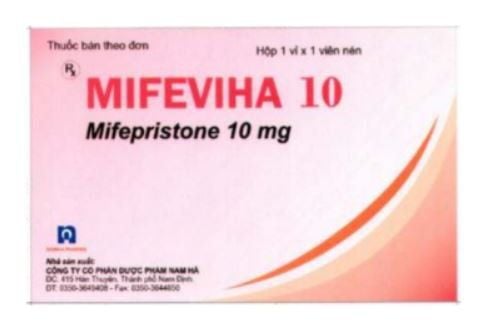This is an automatically translated article.
Professional consultation article by Doctor Department of Obstetrics and Gynecology, Vinmec Hai Phong International General Hospital.
HIV is the human immunodeficiency virus. Pregnant women with this syndrome will face dangerous threats to the mother's immune health and the ability to transmit HIV virus through the uterus to the baby.
1. Routes of HIV transmission from mother to child
The ways of HIV transmission from mother to child include:
HIV transmission from mother to child through the placenta during pregnancy, right from the 8th week of pregnancy, accounts for about 17%-25%. HIV is transmitted through blood and fluids from mother to child during childbirth, accounting for about 50%-60%. HIV is transmitted from mother to baby during breastfeeding, can be from breast milk or cracks, scratches in nipples are the cause, this case accounts for 15%-25%.
Trắc nghiệm: Bạn có hiểu đúng về dấu hiệu mang thai sớm?
Các dấu hiệu mang thai sớm không phải chỉ mỗi trễ kinh mà còn có rất nhiều dấu hiệu khác như xuất huyết âm đạo, ngực căng tức,… Điểm xem bạn biết được bao nhiêu dấu hiệu mang thai sớm thông qua bài trắc nghiệm này nhé!
2. Symptoms of pregnant women infected with HIV/AIDS
Clinical symptoms in people infected with HIV/AIDS in different stages include:
2.1 Clinical stage I Asymptomatic Persistent generalized lymphadenopathy. 2.2 Clinical stage II Unexplained weight loss, < 10% of body weight. Repeated respiratory tract infections. Shingles Mouth ulcers. Itchy, maculopapular rash. Fungal nail infection. 2.3 Clinical stage III More unexplained weight loss, > 10% body weight. Persistent diarrhea of unknown cause. Fever of unknown cause, continuously lasting more than 1 month. Recurrent oral candidiasis. Pulmonary tuberculosis Severe bacterial infection. Acute necrotizing stomatitis. 2.4 Clinical stage IV: severe symptoms. HIV wasting syndrome Pneumocystis jiroveci pneumonia. Esophageal candidiasis Extrapulmonary tuberculosis. Kaposi's sarcoma Some other comorbidities such as myocarditis, kidney disease...
3. Tests to evaluate pregnant women for HIV
Blood test, Hb, ALT. Chest radiograph, AFB sputum, and other laboratory tests to aid in the diagnosis of pulmonary TB, extrapulmonary tuberculosis, and other conditions. CD4 test, tests to help choose ARV regimens such as HbsAg, anti-HCV. Test for creatinine, lipid, blood glucose if the mother uses TDF and protease inhibitors. Note that if HIV test results are negative, advise mothers to retest in late pregnancy in areas with high HIV prevalence.
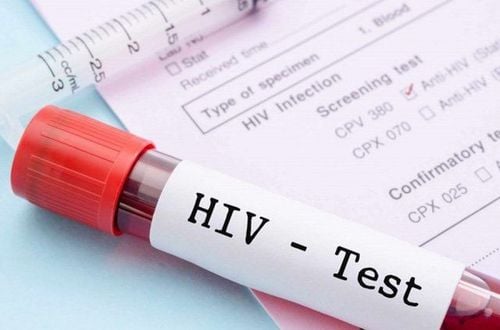
4. Should women with HIV/AIDS have children?
Women living with HIV or even families with HIV-infected parents are still able to give birth to a completely normal child if the mother receives early antiretroviral therapy (ART) and follows the guidelines on feeding. children that doctors advise.
5. HIV/AIDS counseling for pregnant women
Counseling on the routes of HIV transmission from mother to child and measures to prevent HIV transmission to the child. State the possible risks of pregnancy and the problems of feeding and caring for the baby after birth so that the pregnant woman can choose to terminate the pregnancy or continue the pregnancy. For women living with HIV who do not want to have children, abortion is an option to prevent HIV transmission to their children. Note the family and social trauma this woman may have experienced. In case an HIV-infected pregnant woman still wants to have a baby, counseling on HIV-related issues such as preventive treatment to prevent mother-to-child transmission of HIV, and advice on other methods health care for women during pregnancy. Advice on safe sex to avoid HIV transmission. Avoid contact with people with infectious diseases such as tuberculosis and flu. Psychological support for pregnant women living with HIV: explaining and encouraging women to understand and accept and overcome difficult times. Commitment to keep the patient's medical results confidential.
6. Principles and measures to prevent mother-to-child transmission of HIV

Once a pregnant woman is HIV-positive, it is necessary to apply early interventions to prevent mother-to-child transmission of HIV, including:
Prophylaxis with ARVs Using milk substitutes use postpartum care and treatment methods. Indications for ART for pregnant women with HIV:
Depends on clinical stage and CD4 cell count on testing:
Clinical stage IV, independent of CD4 count. Clinical stage III, CD4 < 350 cells/mm3. Clinical stage I and II, CD4 < 250 cells/mm3. If the patient is not tested for CD4, ART is indicated when the disease is in clinical stage III and IV.
Note that for HIV-infected women who are taking ARVs, if they become pregnant, they will continue to take ARVs but need to notify medical facilities so that the treatment regimen can be changed because of some types of treatment. Antiretroviral drugs affect the fetus.
In order to avoid dangerous and undesirable consequences for pregnant women infected with HIV/AIDS, it is necessary to support and create the best conditions for these women to receive HIV counseling for pregnant women in a timely manner. From there, there will be the most appropriate treatment as well as prevention of mother-to-child HIV transmission.
Please dial HOTLINE for more information or register for an appointment HERE. Download MyVinmec app to make appointments faster and to manage your bookings easily.




